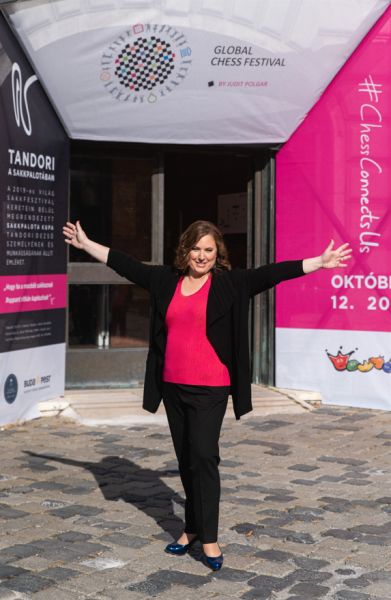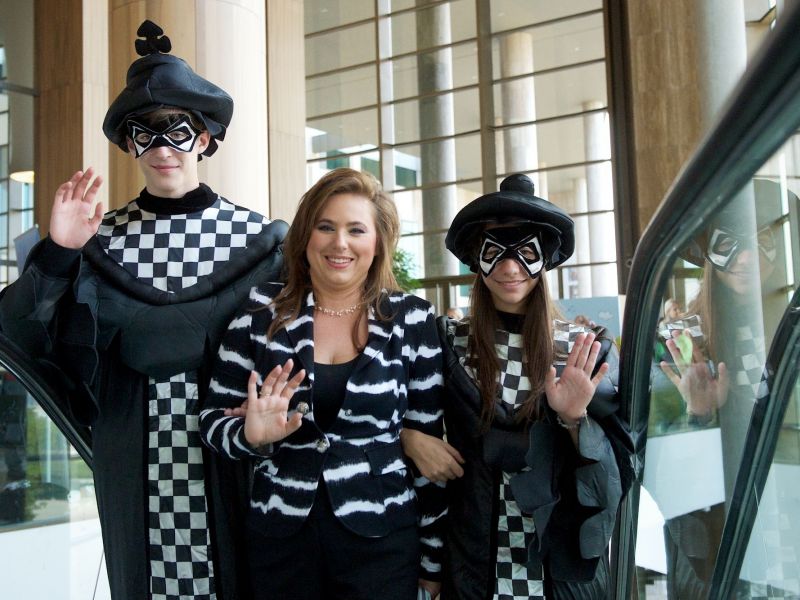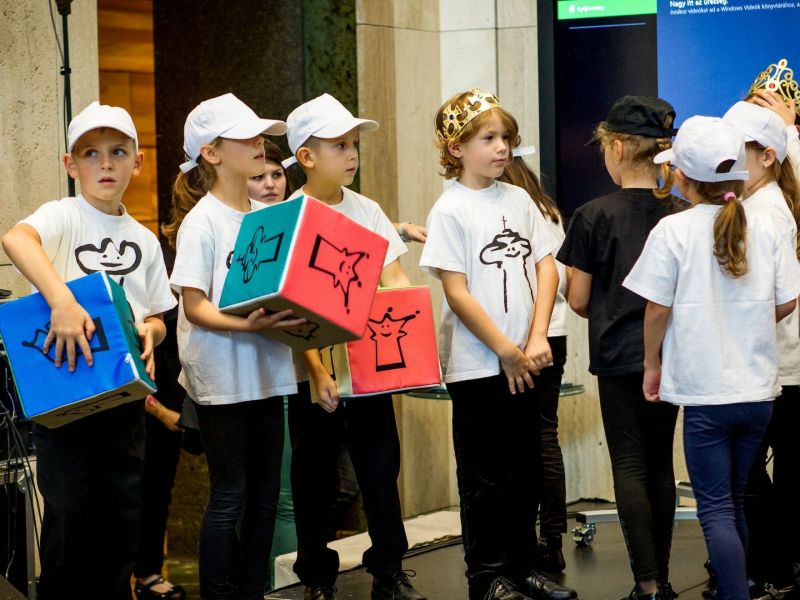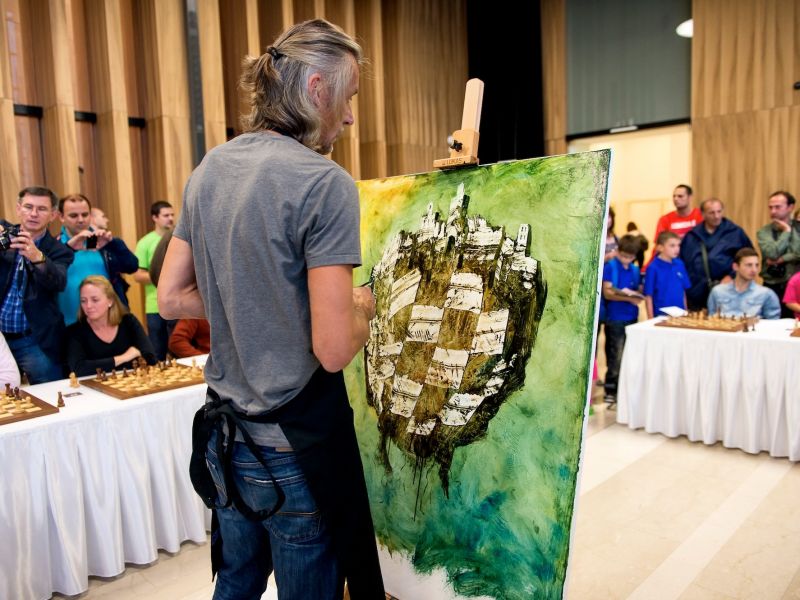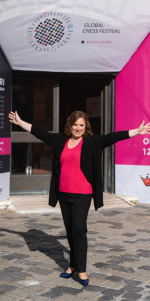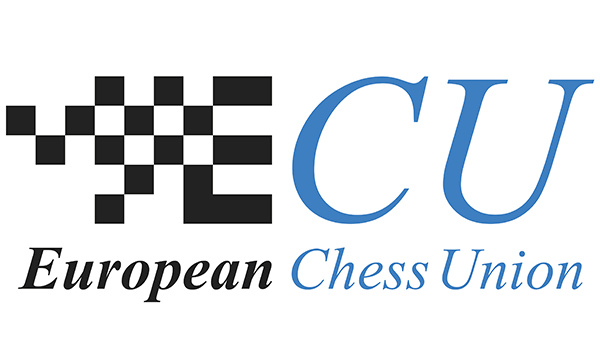2022 is the Year of Women in Chess, which also defines the focus and title of the Global Chess Festival. There will be three sections within this program, Opening, Middlegame and Endgame. We focus on topics inspiring young women, motivating career paths for girls in chess and STEM fields, and the future. What opportunities are there for a girl now if she wants to be an astronomer, physicist or engineer? How can society open the door wider for them?
from 9:00 am CEST
Opening – Get Inspired
In male-dominated areas, it is possible to raise girls to be successful and to take their place on the chessboard of life. It is crucial who they believe in and who is given the background to flourish. Let girls follow their science- and STEM-related dreams. Keywords: support and faith.
■ Grandmaster Judit Polgár: Why “Women in Chess – Women in Science" is the focus of this year's Festival?
■ Dr. David Smerdon: Facts and myths about gender in chess
A scientific approach to the participation and performance gap of women in chess. What can be done for growth? Does quantity bring quality? Moderator Panna Balázsy talks to Dr. David Smerdon (Australia).
David Smerdon
Lecturer at the University of Queensland’s School of Economics, Chess Grandmaster. He primarily works in behavioral and development economics.
■ Rita Atkins: Does single-sex education enhance girls’ achievements in STEM subjects?
With or without boys – that is the question. There has been much research carried out about whether an all-girls learning environment provides the motivation, self-belief, and resilience for young women to feel confident about their abilities in traditionally male-dominated subjects, such as maths and science. We investigate how and if single-sex schooling increases girls’ interests and self-efficacy in STEM subjects and whether it influences their choice to study these subjects at university.
Rita Atkins
Mathematics teacher, Women International Master. She holds a degree in teaching Mathematics and Physics, Budapest, and an MSc in Computing Science from Imperial College, London. She has spent over a decade teaching Mathematics and Physics in Ireland and in the UK.
■ Morgan Stanley and NATE: Why STEM for Girls?
Many girls have already proved that with support and encouragement, they can all follow their true calling to become developers, scientists, and space engineers. In 2018 Morgan Stanley and NATE (Association of Hungarian Women in Science) teamed up to create something unique in Hungary. They assembled a tailored-made program called SMARTIZ for high-school girls building on after-school Math and programming classes, accompanied by insightful mentoring sessions.
• Presentation by Kamilla Juhász: How to Develop a Snake-Game from Scratch?
Kamilla Juhász
High school student, SMARTIZ participant, interested in STEM fields, particularly maths, physics, and informatics.
• Why STEM for Girls?
What types of biases and misbeliefs are still out there about gender and how it impacts and almost limits girls when it comes to choosing a STEM field of their interest in high school? Discussion with Gábor Salamon, Emily Hofer, and Eric Hofer.
Gábor Salamon
He’s been working for Morgan Stanley for 15 years. Gábor joined SMARTIZ as a senior mentor. From his point of view, STEM is the best route to describe and improve our complex world.
Emily Hofer
High school student, interested in several STEM fields, planning on studying aerospace engineering next year. Participated in the SMARTIZ program, where she learned math and informatics. She is a NATE ambassador.
Eric Hofer
Emily's father worked in IT, and as a fraud investigator. He was influenced by parenting by the musing of the late physicist, Richard Feynman about not just parroting but developing one's curiosity, being part of the solution (not the problem), and wanting to learn.
• Presentation by Emily Hofer: Women in Science
Middlegame – Career
Women, who choose the fields of science that match their interests and build a successful career. How they did it? Network scientist Albert-László Barabási and four women talk about research, experience and their stories.
■ Albert-László Barabási: Women’s Performance in Science
Would the world be a better place if more women worked in science? What is the proportion of women in science and how do they perform relative to men? Interview with Albert-László Barabási.
Albert-László Barabási
Network scientist, fascinated with a wide range of topics, from unveiling the structure of the brain to treating diseases using network medicine, from the emergence of success in art to how science really works.
■ Is She Good Enough?
Role models and their stories, part I. Inspiring roundtable discussion with two women who have made distinguished careers in the fields of science and finance. Discussion with Dr. Katalin Balázsi and Alexandra Zsupanek.
Dr. Katalin Balázsi
President of the Association of Hungarian Women in Science (NATE) and the head of Thin Film Physics Department of Institute of Technical Physics and Materials Science, Centre for Energy Research of Eötvös Loránd Research Network. She is the ACERS Global ambassador.
Alexandra Zsupanek
Securitized Products Structuring Vice President at Morgan Stanley who joined the company as a Quantitative Analyst. She is currently leading a team structuring European Asset-Backed Securities in the Fixed Income Division. She is a founding member of the Women in Quant Finance group of the Budapest office.
■ Chess Strategies in Life
Role models and their stories, part II. Inspiring roundtable discussion with two women who played chess as children and teenagers. How did chess shape their thinking, how do they use the knowledge they gained from chess in their work and everyday life? Discussion with Dorina Alberti and Dr. Krisztina Kabai.
Dorina Alberti
Freelance web developer and marketing consultant, her clients include some of Hungary's largest hotel and restaurant chains.
Dr. Krisztina Kabai
Emergency Medicine Physician and Chief Resident at the University of Szeged, Szent-Györgyi Albert Clinical Centre.
Endgame – What is the Next Move?
Women are being under-represented in STEM fields starting from school years. What can be done to drive change in gender diversity and inclusion? What can firms do to move that needle further?
■ Think Ahead!
Foster girls' talent in chess and STEM fields: messages and good practices for parents, educators, and companies. Roundtable discussion with Dana Reizniece-Ozola, Norbert Fogarasi, Gábor Orbán, and Judit Polgár.
Dana Reizniece-Ozola
Current managing director of the International Chess Federation (FIDE). women chess Grandmaster, served as minister of Economics (2014–2016) and minister of Finance (2016–2019) of the Republic of Latvia.
Norbert Fogarasi
Managing Director, Head of Morgan Stanley's Budapest office of 2600+ staff across 10 business units. Previously, he spent 20 years working in technology on pricing and risk management systems for fixed-income products in New York, London, and Tokyo. He holds a Ph.D. in computational finance and a FIDE Candidate Master title in chess.
Gábor Orbán
CEO of Gedeon Richter Plc. He began his professional career as an economist for the National Bank of Hungary and the European Central Bank. He later joined Aegon Asset Management where he worked as a fund manager and the head of the fixed income desk. He served as the state secretary in charge of taxation and the financial sector at the Ministry for National Economy.
Judit Polgár
Grandmaster, Chess Olympic Champion, Educational Ambassador
Moderator and host of the panel: Panna Balázsy

 YouTube
YouTube HU
HU



